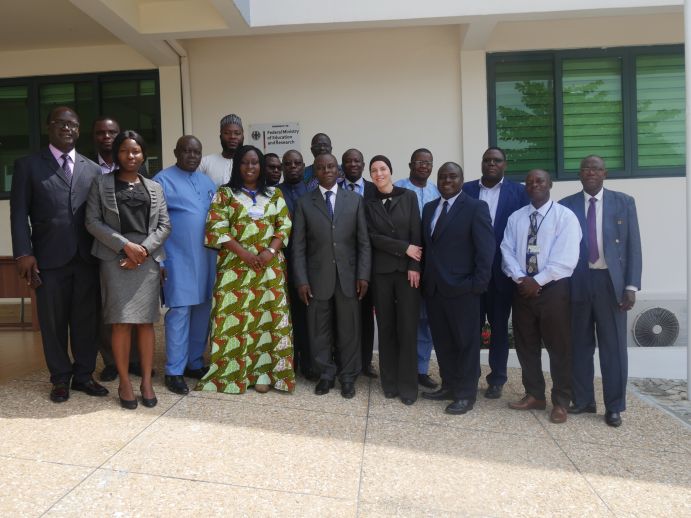Workshop to Map Potential of Green Hydrogen in Africa
Africa has the capability to produce green hydrogen. A new project to map the potential of this environmentally friendly technology aims to determine locations in Africa where green hydrogen could play a key role both in energy supply for local areas and in exports to Germany. This interactive regional map will form the basis for pioneering demonstration projects involving industrial and scientific partners in Africa. The first workshop was held in november in the Ghanaian capital Accra.
Green hydrogen is a key element in the energy transition. In the near future it could be used to fuel cars, heat houses, and create temporary energy stores. Hydrogen is also an important raw material in industry. By mapping the potential of green hydrogen, German and African researchers aim to analyse the associated opportunities in Africa. Building on existing cooperation projects with member countries of WASCAL (West African Science Service Centre on Climate Change and Adapted Land Use) – Benin, Burkina Faso, Cape Verde, Gambia, Ghana, Côte d'Ivoire, Mali, Niger, Nigeria, Senegal, and Togo – as well as with the Economic Community of West African States (ECOWAS), data collection and analysis work will begin in West Africa.
The potential map is a core component of the German Federal Government's national hydrogen strategy, which is due to be adopted by the Federal Cabinet before the end of 2019. Targeted at policymakers and investors, the potential map will provide a practical survey of promising locations in Africa for the establishment of a production and transport infrastructure.
Relevant factors include the potential of renewables such as solar and wind energy, additional climate models, and the availability of water. Political conditions will also be taken into consideration. Furthermore, the map will lay the foundations for pioneering demonstration projects involving industrial and scientific partners, and thus promote the foundation of new hydrogen partnerships. An overview of locations will be made available as soon as mid-2020.
The project is being coordinated by Dr. Solomon Agbo from Forschungszentrum Jülich GmbH. The scientist, who grew up in Nigeria, will work on building a bridge to Africa together with a core team and with the participation of all relevant stakeholders from science and industry.




